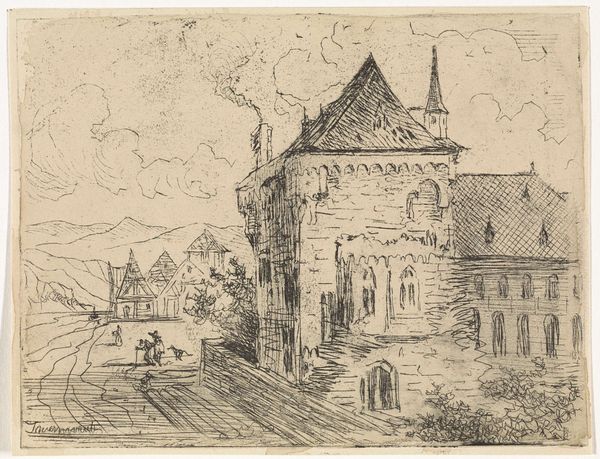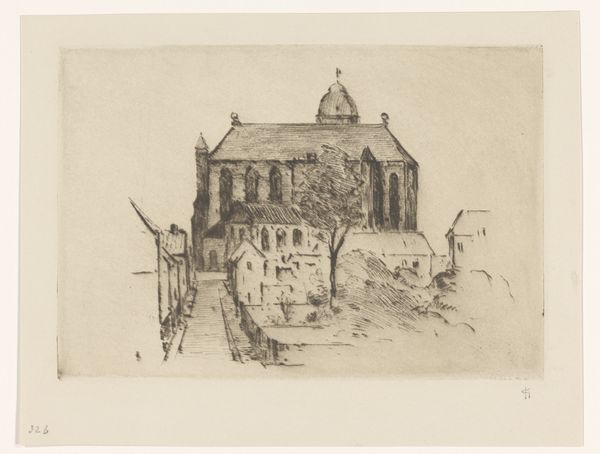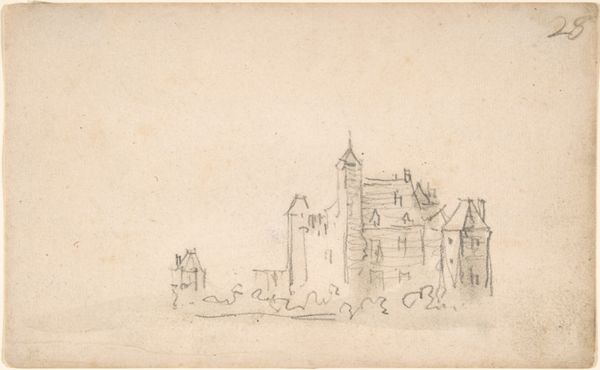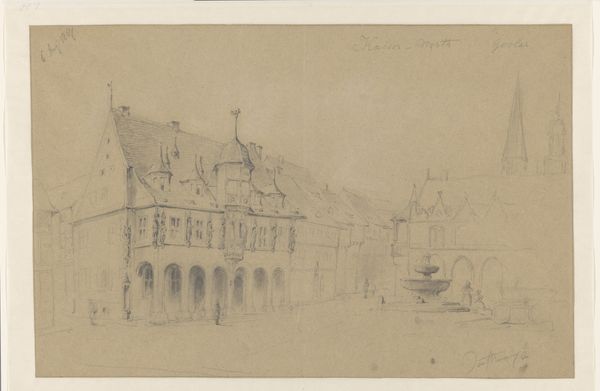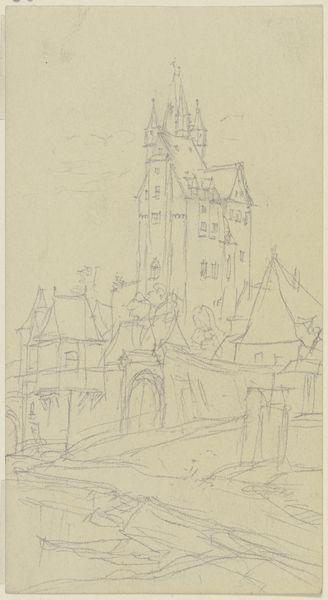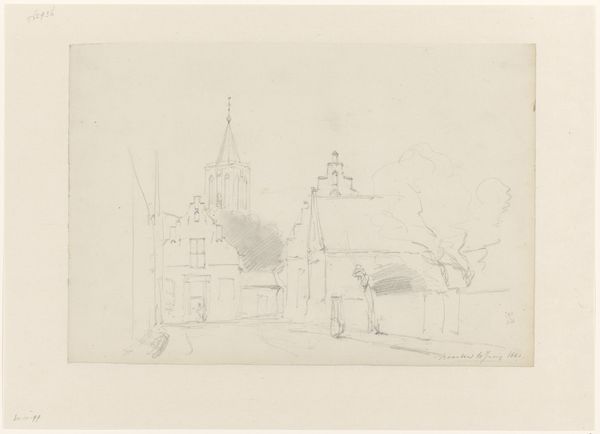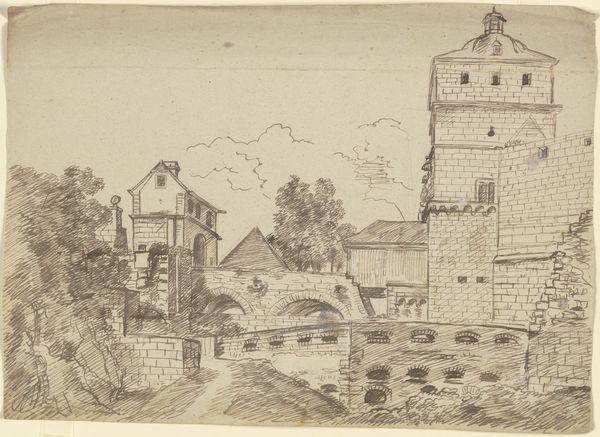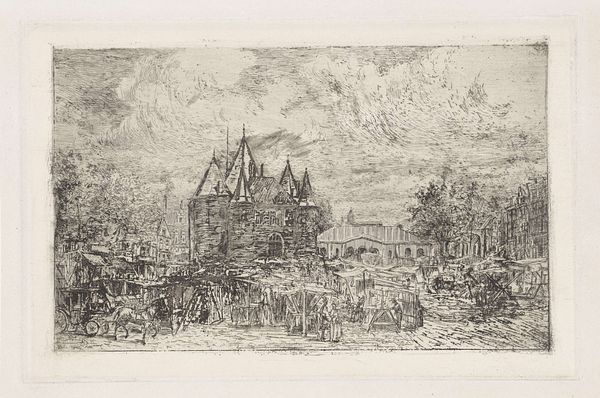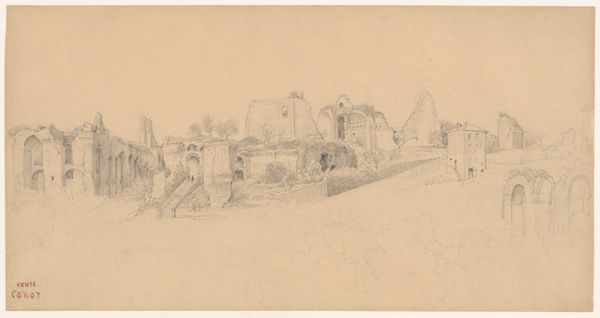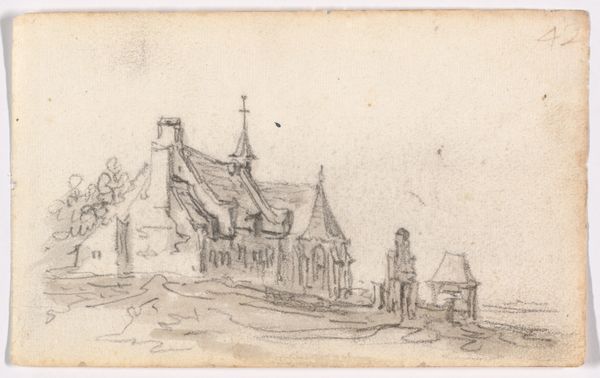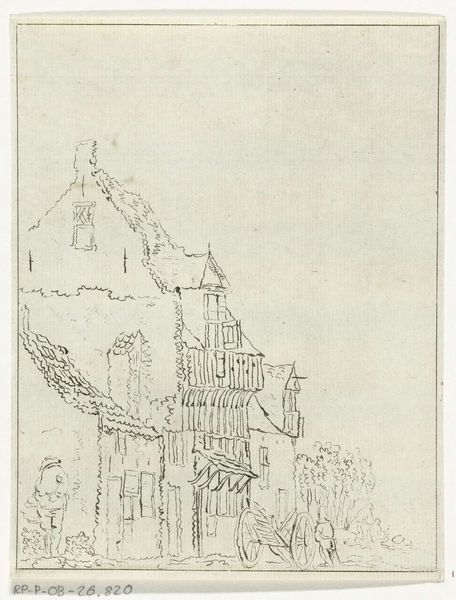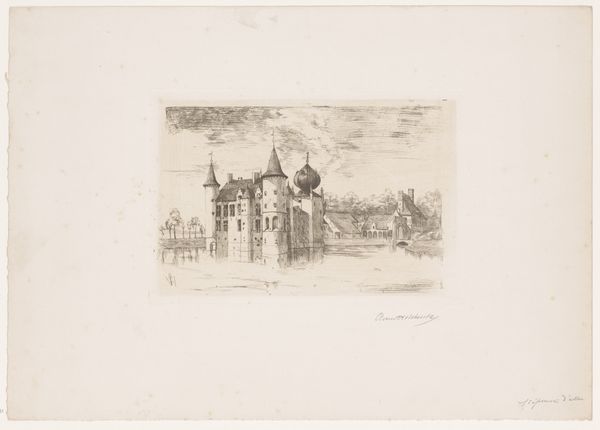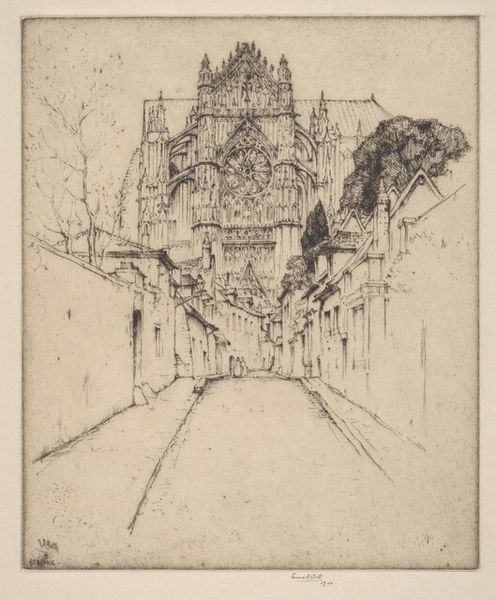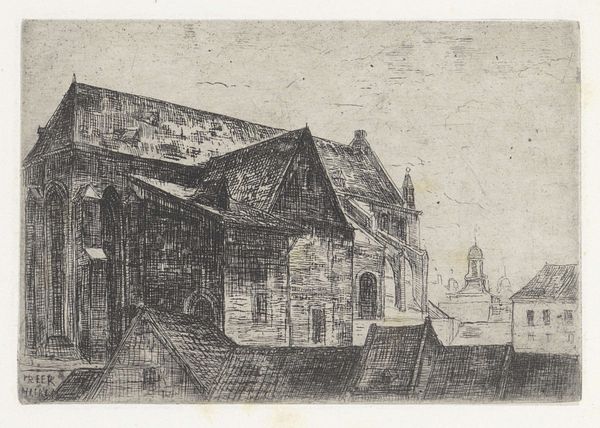
drawing, paper, ink
#
architectural sketch
#
drawing
#
mechanical pen drawing
#
pen sketch
#
landscape
#
paper
#
form
#
personal sketchbook
#
ink
#
sketchwork
#
ink drawing experimentation
#
pen-ink sketch
#
line
#
pen work
#
sketchbook drawing
#
cityscape
#
storyboard and sketchbook work
#
realism
Dimensions: height 107 mm, width 146 mm
Copyright: Rijks Museum: Open Domain
Editor: So, here we have "Gebouw te Boppard" by Johannes Tavenraat, likely made sometime between 1819 and 1881. It's an ink drawing on paper, a cityscape rendered in delicate lines. It almost feels like a memory fading, or a scene glimpsed quickly from a train window. What strikes you when you look at this piece? Curator: What I find fascinating is the intersection of personal observation and broader socio-political shifts in the 19th century. This "Gebouw te Boppard" reminds me that even seemingly simple architectural sketches weren't created in a vacuum. This was a time of burgeoning tourism and a romantic interest in picturesque, often historically significant, sites. The rising middle class increasingly consumed imagery of these places, both through original art and, importantly, printed reproductions. Editor: That's interesting – you’re saying that the act of creating and then displaying a work like this had some socio-political import? Curator: Precisely. Consider who would commission or buy such a work. Wealthy individuals wanted reminders of their travels, or to signal their refined taste. So Tavenraat’s sketch isn’t just a depiction of Boppard, but also an artifact tied to the era’s visual culture and emerging tourism industry. Editor: Do you think the medium -- ink on paper, a sketch rather than a finished painting -- is significant in this context? Curator: Absolutely. Its intimacy suggests the artist may have initially created this for a personal sketchbook, or as a preliminary study. But once exhibited or sold, it takes on a public role. It contributes to the collective imagination of "Boppard," influencing how people viewed and perhaps even visited the location. The sketchwork quality reinforces authenticity - it feels like a ‘true’ view. Editor: So it's less about Boppard itself, and more about the act of seeing and then sharing it. Curator: Exactly. We must always consider art within its social and economic framework. That shapes its meaning as much as, or even more than, the artist’s intention. Editor: I hadn't really considered the tourist aspect before, it completely changes how I see the image. Thank you! Curator: It is through dialogues such as this, by appreciating context, that we breathe fresh perspective to artwork evaluation.
Comments
No comments
Be the first to comment and join the conversation on the ultimate creative platform.
